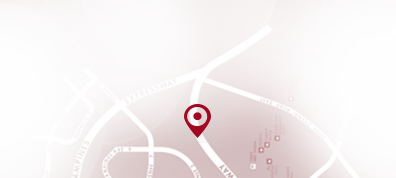Caring for others is a gift of love and sometimes a calling. We may work in a caring profession as a social worker, medical professional, teacher, counselor, pastor and others. We all become caregivers of family members. So often we are caring for so many people at once it can become overwhelming. Or maybe we are caring for someone over the long haul with a chronic or debilitating condition. When it becomes necessary to care for a loved one fighting cancer, recovering from a serious physical illness like a stroke or surgery, or a mental illness such as dementia, depression or other serious mental diagnosis, we often find ourselves juggling all our roles and trying to stay afloat. “God never gives us more than we can handle” is a common saying but it’s more helpful to hear that “God is with us through the hardest times”.
As a personal example, since August, our youngest adult son moved home, my sister had a heart attack, my close cousin in California has been fighting breast cancer and her elderly mother has dementia and broke a hip when she fell (I flew out there for a few days to be of support), another close cousin was recently diagnosed with a rapid form of ALS, all while organizing cleaning and caregiving for my 96 year old father who is still in his own home. As a retired home care and hospice nurse you’d think that supporting all these loved ones would come naturally, but I found myself feeling very tired and stressed and sad at times. Grounding myself with daily devotion,Bible reading and prayer gave me strength and resilience. Spending time with friends and family brought so much joy and distraction and hugs.
How do we help ourselves and one another in these stressful life situations?
On an airplane we’re told to “Be sure to put on your own oxygen mask first before you assist someone else”. The same holds true with caregiving. If you don’t take time to eat well, get rest and exercise, take breaks, enlist others to help, your health can suffer and you may find you are the one needing care. Sometimes that’s easier said than done because we get so busy with all the required and unexpected tasks that we run out of hours in the day. Often we are driven by feelings of guilt, responsibility, or maybe we think no one else can do it as well.
Try setting goals for your own health and well-being and spend 15 minutes taking a walk, or a bath, or calling a friend. Remember the Serenity Prayer and ask yourself what things you have control over and how to get caregiving help and support, before you’re at the end of your rope. Reaching out for help when you need it is a sign of personal strength ! Have a mental list ready when people ask how they can help. It’s okay to have someone stay with your loved one while you go out for lunch or to church or for a pedicure. Do you need help getting groceries, preparing food, shoveling snow, cleaning, running errands, etc? Would it be a relief to have someone else stay with your loved one for a few hours or a even a weekend? Asking other family members to spell you or help with decisions can be a special gift to all involved.
As a caring congregation we can offer to lighten the load for those we know are in the midst of caring for a loved one. We have a prayer chain and a meal train available by calling or emailing the church office, but we can also enlist members to sign up to volunteer for whatever help is needed. Let’s start by connecting with one another in personal ways, asking how folks are doing and being honest in sharing our own struggles.
There is so much education and support available. Begin by learning as much as you can about your loved one’s diagnosis. WebMD and Mayo Clinic are good places to start.
Websites: Google Caregiving.
Family Caregiver Alliance National Center on Caregiving: www.caregiver.org
Eldercare locator: eldercare.acl.gov
aarp.org
Books I recommend:
The 36 Hour Day: A Family Guide to Caring for People who Have Alzheimers, by Nancy Mace
Passages in Caregiving by Gail Sheehy (currently in our LOC library)
The Sudden Caregiver: A Roadmap for Resilient Caregiving by Karen Warner Schueler
“I am not afraid of storms, for I am learning how to sail my ship.” Louisa Mae Alcott


